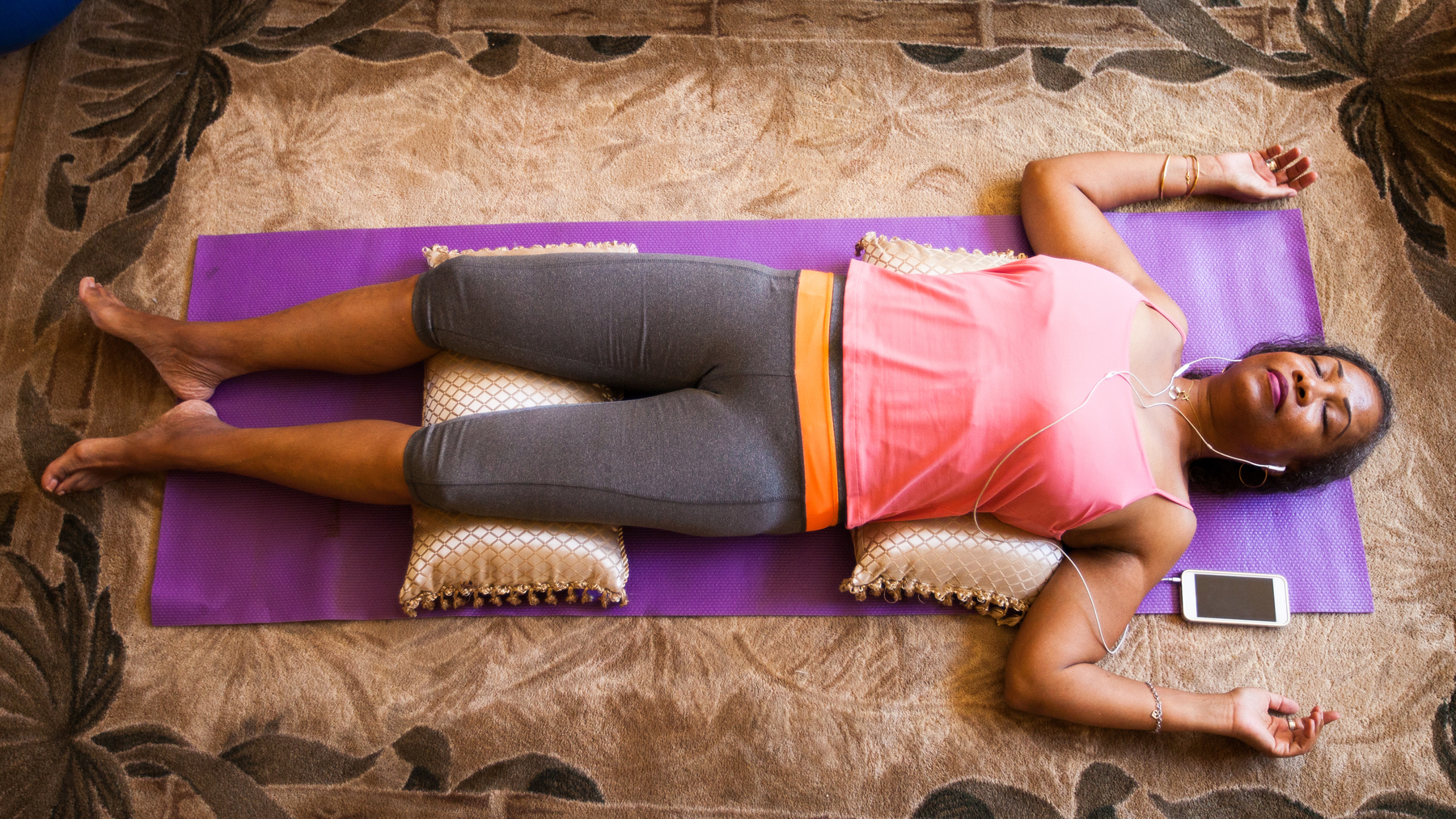Have you tried 'progressive muscle relaxation'? Science reveals it relieves tensions and reduces stress
Progressive muscle relaxation is a technique you can practice at home to decrease muscle tension and feelings of stress


It's really easy to let tension build up in your body without noticing until it's too late, and this can have a knock-on effect on your stress and anxiety levels. Rather than let your muscles sort themselves out, you can help them and research suggests trying a technique known as 'progressive muscle relaxation', or PMR.
Whether you're feeling all tensed up from training with some of the best workouts for arms at the gym, or maybe you've had a stressful period at work or at home, it's important you slow down and train your body to relax again.
While it might sound like a complex practice, it's essentially a method you can learn to help relieve tensions in your muscles. The process involves tensing a group of muscles as you breathe in, and then relaxing them as you breathe out.
The idea is you work through different muscle groups as you learn the technique. The act of contracting your muscles to form tension and then progressively releasing this tension is supposed to be repeated until you achieve full relaxation.
Check out the how-to video below for a visual guide on how to practice PMR:
According to research published in the Evidence-Based Complementary and Alternative Medicine journal, progressive muscle relaxation training can promote both psychological and physiological states of relaxation.
In this study, sixty healthy undergraduate students were assigned to one of three stress relaxation groups. These included progressive muscle relaxation training, deep breathing, or guided imagery. The researchers assessed both the participants' psychological and physiological relaxation levels following these practices. The results proved that progressive muscle relaxation offered "significant" improvement in relaxation physically, and mentally, among the group of students.
Start your week with achievable workout ideas, health tips and wellbeing advice in your inbox.
The PMR group involved in this study completed this relaxation technique by following a verbal instructed audio recording. If you would like to give PMR a go, you can find tutorials on YouTube (like the one above) that can help guide you through the process.
The technique has been proven in other research to be effective. For example, in a random sample study involving 30 nursing students, researchers found PMR significantly reduced stress levels. Meanwhile, another study on nursing students discovered it alleviated test anxiety.
PMR might not feel very natural at first, but there are other ways to ease yourself into this kind of practice. Getting used to some basic yoga stretching and breath work on one of the best yoga mats is a great way to experience more mindful activity. A flow like this 20-minute yoga routine will help you sleep better and feel calmer.
Or if you find it's hefty gym sessions leaving you in an endless loop of muscle ache and tension, then you should consider checking out some of the best foam rollers. These are great for rolling out muscle tension after a workout and can be bought for relatively cheap.
Jessica is an experienced fitness writer with a passion for running. Her career in journalism began in local news and she holds a Masters in journalism. Jessica has previously written for Runners World, penning news and features on fitness, sportswear and nutrition.
When she isn't writing up news and features for Fit&Well covering topics ranging from muscle building, to yoga, to female health and so on, she will be outdoors somewhere, testing out the latest fitness equipment and accessories to help others find top products for their own fitness journeys. Her testing pairs up nicely with her love for running. She recently branched out to running 10Ks and is trying to improve her time before moving on to larger races. Jessica also enjoys building on her strength in the gym and is a believer in health and wellness beginning in the kitchen. She shares all of this on her running Instagram account @jessrunshere which she uses for accountability and for connecting with like-minded fitness lovers.
